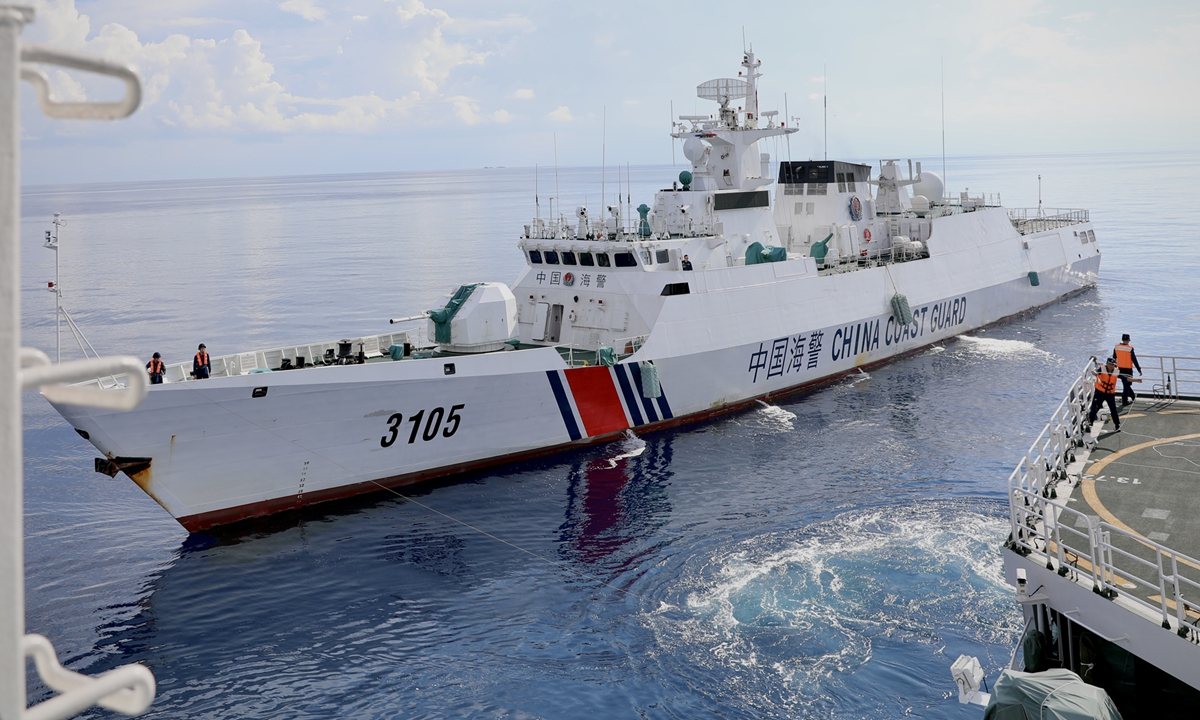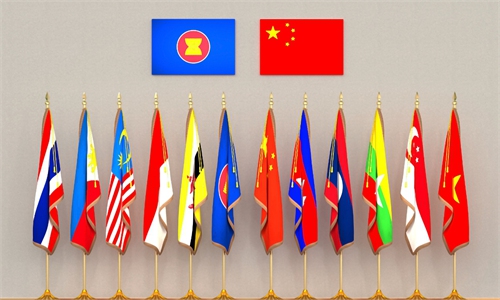Philippines reportedly mulls expanding provisional arrangement with China after latest collision incident

Law enforcers attend a tow training on China Coast Guard vessel Wanshan formation patrolling the waters off Huangyan Dao in South China Sea on July 8, 2024.?Photo: Lin Xiaoyi/GT
The Philippines is reportedly considering broadening the scope of provisional arrangement with China to ease tensions in the South China Sea.
Alexander Lopez, the spokesperson of the maritime council of the Philippines, said in a televised briefing on Tuesday that the two countries' provisional arrangement on resupply missions to Ren'ai Jiao (Ren'ai Reef) could be "expanded to a bigger area," Bloomberg reported on Tuesday.
The provisional arrangement on humanitarian resupply of living necessities to a Philippine warship illegally grounded at Ren'ai Jiao was reached in July. The latest move of the Philippines came after two Philippine coast guard vessels, without permission from the Chinese government, intruded into the adjacent waters of Xianbin Jiao, and acted dangerously by ramming the China Coast Guard vessel on Monday.
The Chinese Embassy in the Philippines on Tuesday urged the Philippines to earnestly observe the arrangement reached with China and to refrain from taking actions that may complicate the situation. Chinese Foreign Ministry spokesperson Mao Ning said Manila's move seriously infringes on China's sovereignty, and threatens peace and stability in the South China Sea.
The Philippines, after seeing China's determination to safeguard its territorial sovereignty and maritime rights and interests, perhaps has started to reflect on whether its current policies are reasonable and whether they could maximize its national interests, Chen Xiangmiao, director of the world navy research center at the National Institute for South China Sea Studies, told the Global Times on Wednesday.
Chen said that sending such a signal may be also a strategy to "let China put its guard down," and ease pressure on the Philippines through playing the victim.
China's attitude toward the Philippines has always been to listen to what it says and watch what it does, Chen said, adding "it all depends on whether the Philippines keeps its promises."

